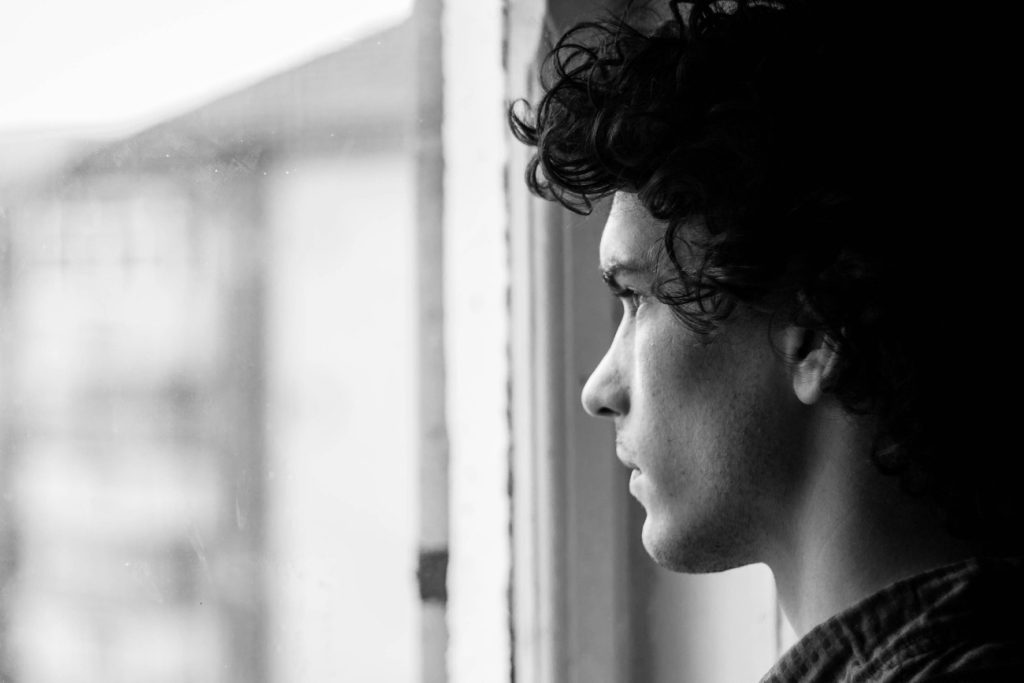Psychotic disorders comprise serious mental health conditions that affect a person’s ability to think and communicate clearly. Psychosis comes from a Greek word meaning an abnormal condition of the mind. An individual in psychosis views a distorted reality and exhibits negative behaviors.
Types of psychotic disorders include schizophrenia and schizoaffective disorders, bipolar disorder, and catatonia. Substance abuse is a double-sided sword to psychosis, as it can cause psychosis and exacerbate the condition and other co-occurring issues. This article will address psychotic disorders, substance abuse, co-occurring disorders that may accompany psychosis, and the associated treatments and therapies.
Schizophrenia
The most common type of psychotic disorder is schizophrenia. A diagnosis of schizophrenia usually comes between the ages of 16 and 30; it can present in other ages but is rare. The diagnosis is typically given after the first psychotic episode occurs, and treatment is started as quickly as possible after diagnosis. That said, symptoms of cognition, mood, and social interaction changes may appear before the first episode.
Psychotic symptoms include hallucinations, delusions, illogical thoughts, and abnormal body movement. Negative symptoms include little or no motivation, lacking enjoyment, social anxiety, lack of emotions, and abnormal functioning. Problems with memory, concentration, and paying attention are cognitive symptoms of schizophrenia. Collectively, symptoms of schizophrenia make it difficult to maneuver daily life. Fortunately, there is treatment, and it is crucial to the person’s quality of life.
What causes schizophrenia? Genetics may play a part, as it tends to run in families. That is not an assurance of contracting the disorder. Although genetics may play a part, a person’s environment and life experiences may also affect the development of it. Research also shows that variances in the size of some brain areas may also factor in.
Other Psychotic Disorders
While similar to schizophrenia, schizoaffective disorder includes schizophrenia and one or both of the mood disorders, bipolar disorder, or major depression. Schizoaffective disorder must be treated as soon as possible, along with the associated mood disorders. Otherwise, daily functioning could decline.
Formerly called manic depression, bipolar disorder is a mood disorder and a chronic mental health condition that consists of manic and depressive episodes that cause daily challenges. Without treatment, the episodes and daily life become difficult to manage. The episodes range from extremely high (mania) to very low (depression).
Catatonia is a psychomotor condition that results in impaired speech and motor skills and may cause psychosis. The person exhibiting catatonia may appear unaware of things and the people around them. They may behave sporadically or unusually, and their actions may be unsafe for themselves and others. After making a diagnosis, all the above disorders and conditions need treatment as soon as possible.
Substance Use Disorder
The cause of substance use disorder is unknown, but numerous factors are believed to contribute to one’s dependence on drugs. Genetics, peer pressure, mental health disorders such as anxiety and depression, and daily stress can lead to SUD. It is one of the most serious physical and mental health risks globally. Substance use disorder affects an individual’s brain and behavior, resulting in a loss of control over their substance or alcohol usage.
Coupling SUD with mental health disorders and the challenges associated increase substantially. A combination of a psychotic disorder and substance use dependency, for example, can take an enormous toll on a person, their loved ones, and society. Treatment of one will not alleviate issues of the other and will most likely exacerbate the problems. In other words, treatment needs to run concurrently for co-occurring disorders.
Treatment for Psychotic Disorders and Co-occurring Disorders
Prevention, treatment, and recovery programs for substance use disorders, psychotic disorders, and other occurring disorders are crucial to the United States. Substance use disorder affects over 20 million Americans annually, and many co-occurring disorders often accompany SUDs. As only about ten percent receive treatment, the impairment that results causes an inability to meet work and home obligations.
After diagnosis, treatment for psychotic disorders often begins with medication to regulate neurotransmitters. Dopamine and serotonin are neurotransmitters, and medication can help balance hallucinations and delusional thoughts. The doctor may prescribe antipsychotics or antidepressants.
Psychotherapy is typically used for psychotic disorders and other mental health disorders. Also referred to as talk therapy, it can help cope with emotional, mental, personality, and behavioral disorders through individual and group discussion, active listening, and counseling.
The most important thing to remember is that it can be a danger to an individual exhibiting psychotic disorder symptoms to avoid treatment. If your loved one is experiencing psychotic and other co-occurring disorders, please seek help for them immediately.
Getting the behaviors and accompanying hallucinations or delusions under control are paramount to further assisting an individual toward a more manageable life. Begin by having a conversation with them, but if that is not possible, intervention may be necessary for the safety of the individual and others around them. Psychotic disorders and co-occurring disorders are treatable and can be treated together.
At SoCal Mental Health, our commitment to you is for your overall well-being. We are committed to helping with mental health and alcohol and substance abuse challenges. Some mental health conditions are more serious than others, but our professional staff treats all with compassion and support. Therapies, treatments, and individualized mental health programs are designed for your specific needs. If you feel overwhelmed due to depression or other mental health, alcohol, or substance dependence, know that we can help. Our staff is here to meet your needs, whether for mental health, substance abuse recovery, relapse, or other addictive struggles. You do not have to go through this alone. Call SoCal Mental Health at (888) 312-0219 for more information.












